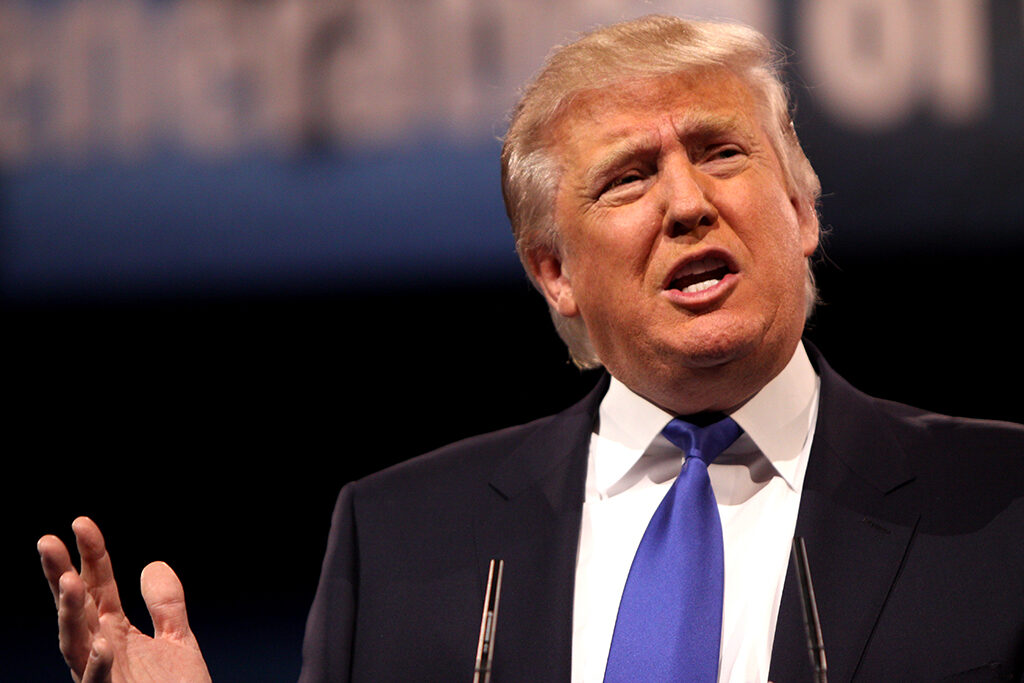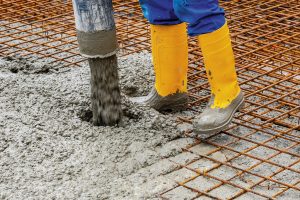The construction sector has welcomed a “historic” deal with the US over tariffs that will remove import taxes on steel and aluminium.
It comes amid fears UK construction growth would be delayed because of the fallout from President Donald Trump’s tariff hikes.
On Thursday (8 May), Trump said: “The US and the UK have been working for years to make this deal. It is the first of a number of agreements on trade.”
US secretary of commerce Howard Lutnick said British steel will be safeguarded as part of the deal.
“With steel and aluminium, their steel business has been destroyed by people dumping steel into their market,” he said.
“The British government as part of this deal will nationalise it. It will be part of a resurgence of steel and aluminium into the US and will save thousands of jobs.”
The UK steel industry – which was on the brink of collapse just weeks ago – will no longer face tariffs.
“Prime minister Sir Keir Starmer negotiated the 25 per cent tariff down to zero, meaning UK steelmakers can carry on exporting to the US,” the Department of Trade said in a statement.
“This follows last month’s intervention from the prime minister to take control of British Steel to save thousands of jobs in Scunthorpe.”
Starmer said it will protect thousands of jobs and said it was “just the start”.
“This historic deal delivers for British business and British workers protecting thousands of British jobs in key sectors including car manufacturing and steel,” he said.
UK Steel director general Gareth Stace said the move will offer major relief.
“The UK government’s cool-headed approach and perseverance in negotiating with the US clearly paid off. This deal will offer major relief to the UK steel sector at a time when it is battling numerous other challenges, not least global overcapacity, high energy costs and weak demand,” he said.
“The impact of US steel tariffs is not limited to UK exports, but also the damaging consequences of trade diversion from other markets. Bolstering the UK’s trade defences is therefore also paramount.
“The government must use this momentum to deliver a bold and comprehensive steel strategy that will set our sector on a sustainable footing once and for all. This must include long-term effective trade defences, competitive electricity prices, robust carbon leakage protection and supportive public procurement.”
Kelly Boorman, national head of construction at consultancy RSM UK, said the announcement “signals a potentially important step” for the UK’s construction industry.
“In recent years, the sector has struggled with rising energy costs, labour shortages, and rising employers’ national insurance contributions. The added uncertainty of tariffs had also seen material prices spike, squeezing profit margins and disrupting the supply chain,” she said.
“However, the removal of tariffs will help to combat growing cost pressures for steel and aluminium manufacturers, who have struggled with higher energy prices.”
Last month, the Construction Products Association (CPA) warned big private sector projects could stutter while investors waited to gauge the outcome and impact of global import duty hikes.
Trump placed import tariffs of between 10 and 145 per cent on countries around the world last month, although he has since paused the introduction of many of these to allow talks to take place.
Paul Kirkpatrick, partner and head of manufacturing and industrials at law firm Browne Jacobson, said the deal should help “bolster” investment for firms.
“Agreement of a US-UK trade deal, hot on the heels of the India trade deal being signed, is a significant success for this government and will help to make UK industry globally competitive and innovative,” he said.
 Construction News Read UK Construction Industry News, Analysis, Opinion and data
Construction News Read UK Construction Industry News, Analysis, Opinion and data 






Have your say
or a new account to join the discussion.